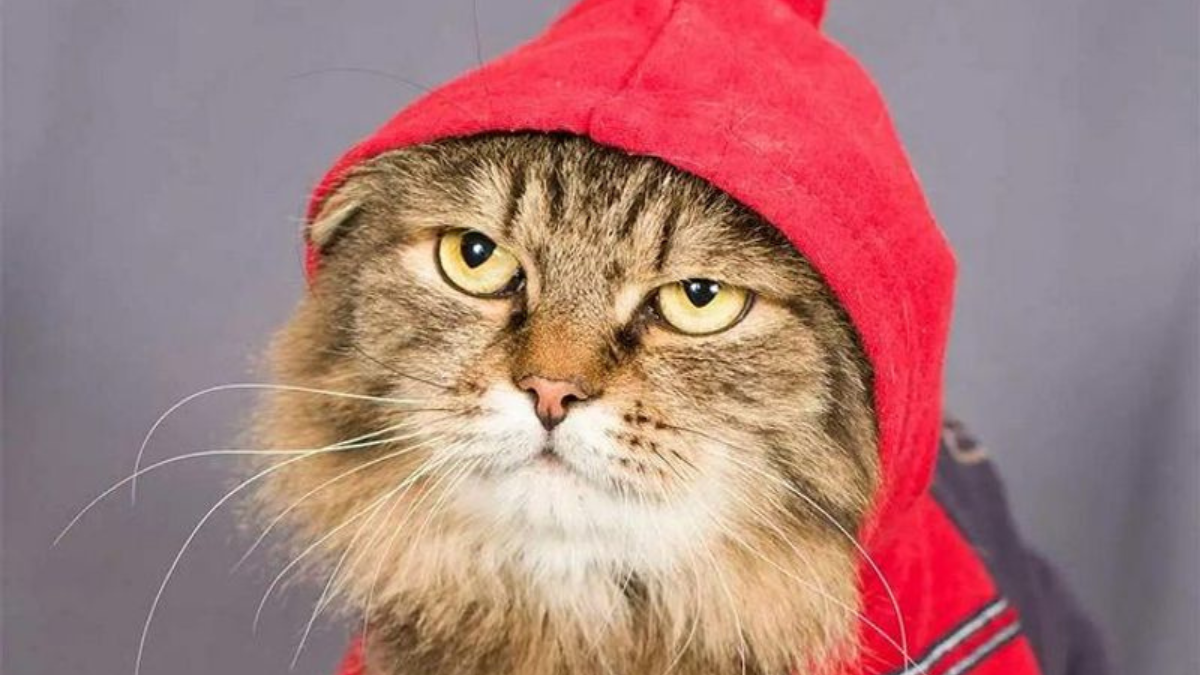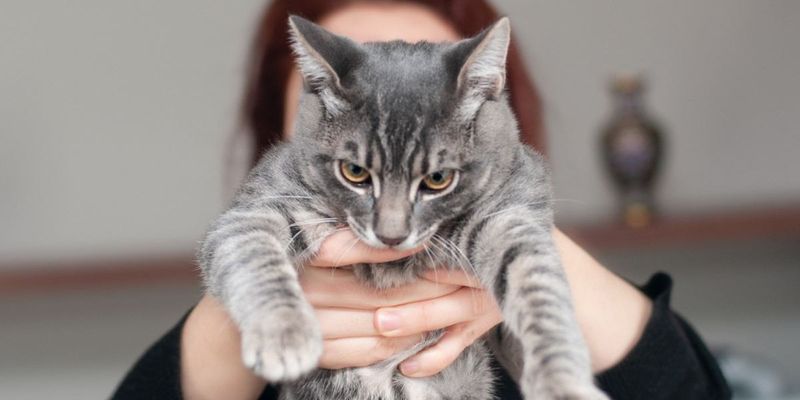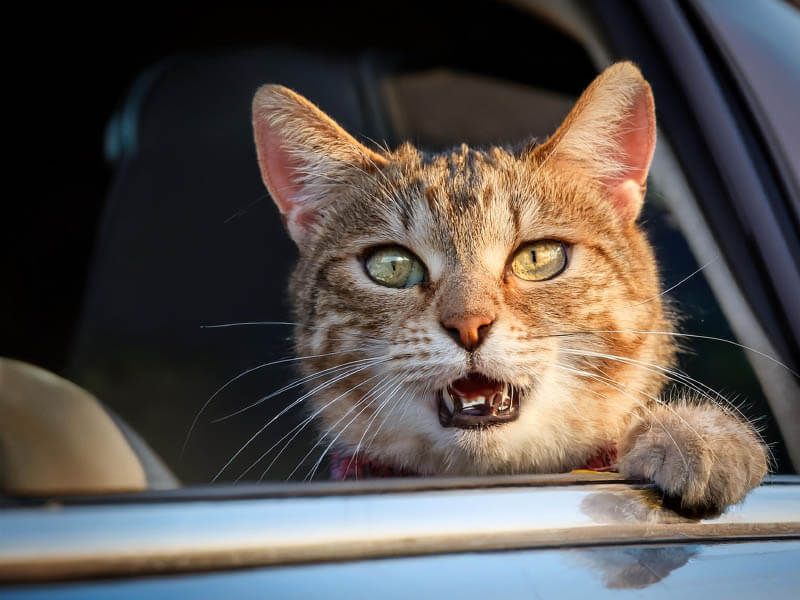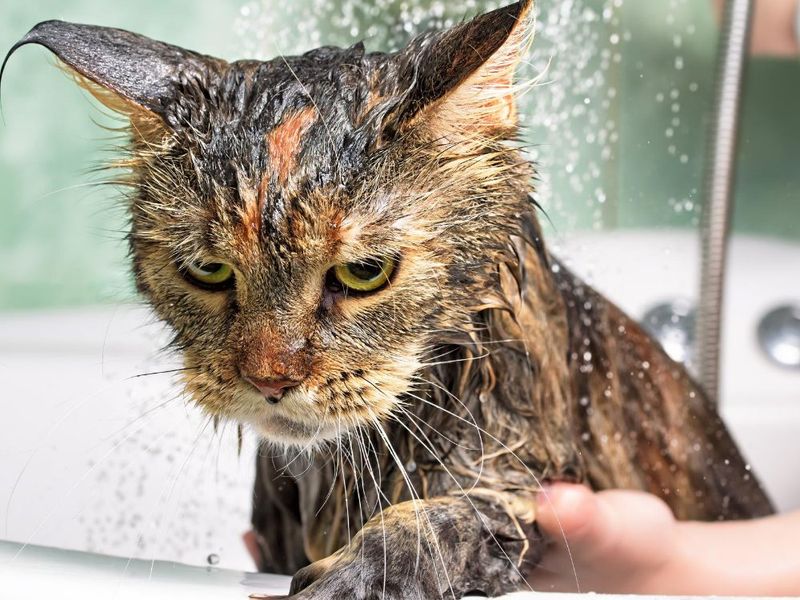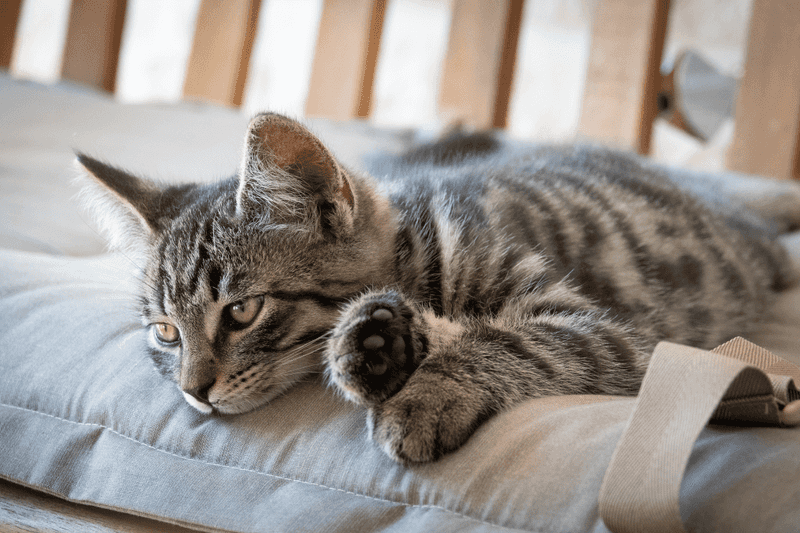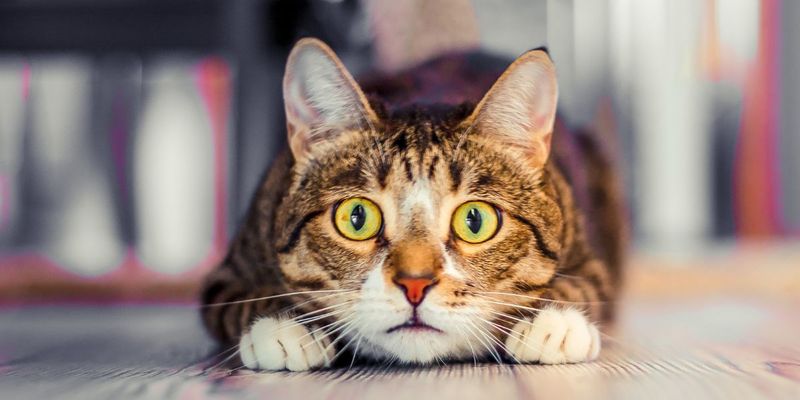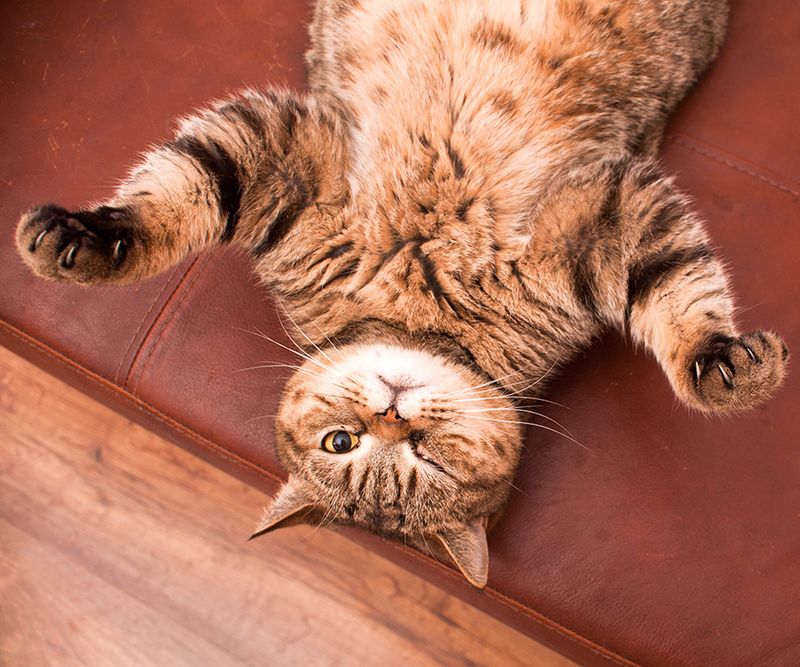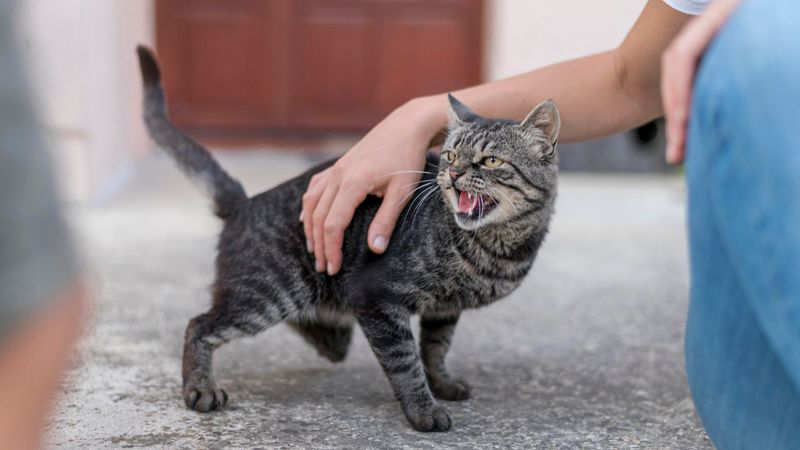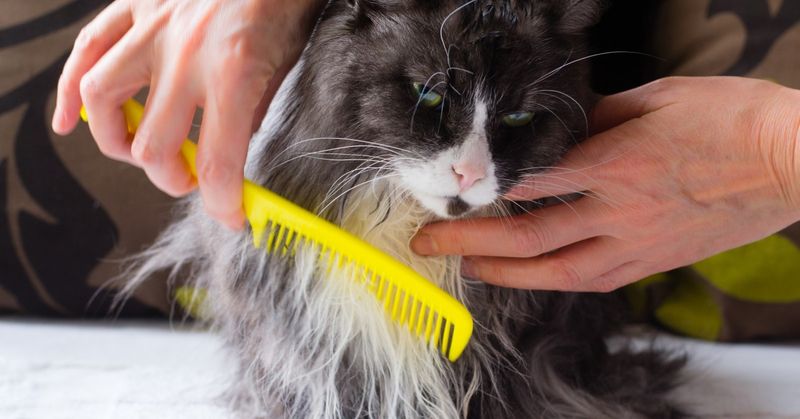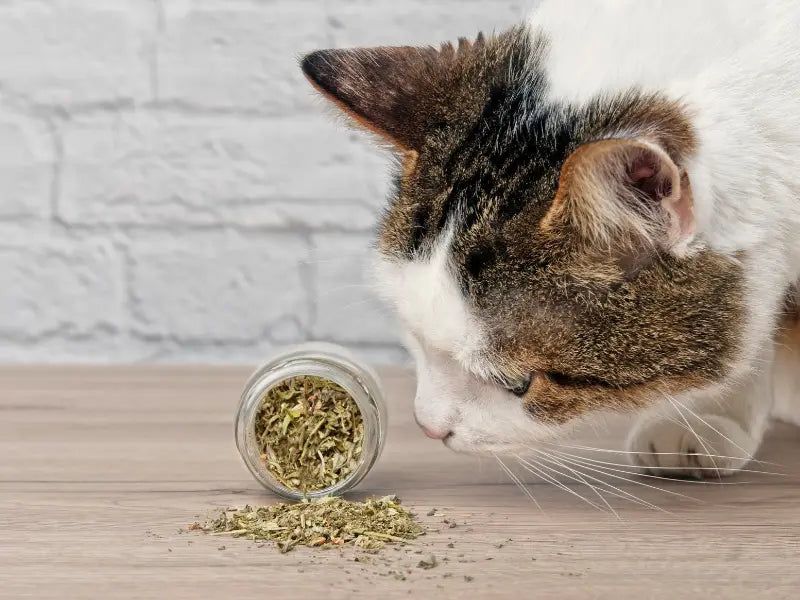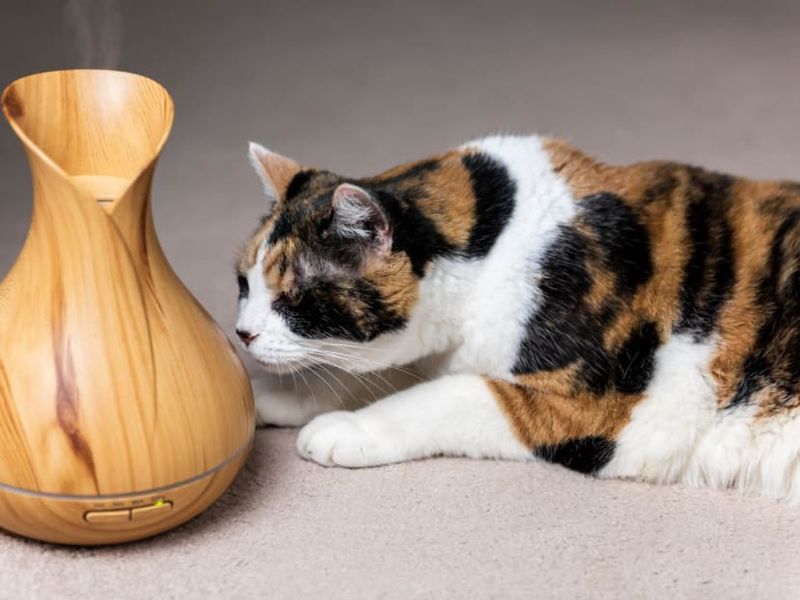📖 Table of Content:
Cats are full of personality, often surprising those around them with their likes and dislikes. Their curious habits can be misleading, making it easy to assume they enjoy certain things. However, some of these assumptions don’t always align with reality.
What may look like enjoyment could actually be discomfort or stress. Many behaviors are misread, simply because they appear cute or familiar. It’s important to understand the difference between what entertains us and what truly benefits the cat.
Certain routines or items often believed to be feline favorites may actually cause irritation or anxiety. Recognizing these misconceptions can lead to a more comfortable and respectful environment. Learning what cats genuinely prefer helps build stronger bonds and better care.
1. Being Cradled Like a Baby
Many cat owners love to cradle their feline friends like a baby, imagining it’s a comforting gesture. However, most cats find this position restrictive and uncomfortable. Cats prefer freedom of movement, and being held too tightly can make them anxious.
While some might tolerate it for short periods, chances are they’ll wriggle free at the earliest opportunity. Instead, let your cat come to you on their terms. Offering them a cozy lap where they can sit in their preferred position is often the best way to show affection. Remember, a cat’s love for liberty surpasses the allure of human-like cuddles.
2. Wearing Cute Outfits
Dressing cats in cute outfits can be tempting, especially during festive seasons. However, most felines despise wearing clothes, as it restricts their movement and feels unnatural. Cats are agile creatures and anything that disrupts their natural grace is usually unwelcome. Costumes might look adorable to humans, but they’re generally uncomfortable for cats.
Allow your cat to revel in their natural fur instead of outfits. If you want to get festive, opt for fun accessories like themed collars or toys for a less obtrusive celebration.
3. Taking Long Car Rides
While some pets enjoy car rides, cats usually do not. The unfamiliar sounds and movements outside can trigger their anxiety. Cats are territorial, and being in a moving vehicle can make them feel vulnerable.
Most would much rather stay in the safety of their home environment than endure the chaos of a car ride. For necessary journeys, such as vet visits, ensure they’re comfortable in a secure carrier. Shorter, less frequent rides make the experience less stressful for your feline friend.
4. Baths with Water
The idea of a cat enjoying a warm bath might sound delightful, but in reality, most cats prefer to keep their paws dry. Cats are naturally clean animals that groom themselves efficiently without needing a bath.
The sensation of water can be distressing for many cats, causing them to panic. Instead of a bath, regular brushing can help maintain their coat’s condition and reduce shedding. Unless it’s essential for their health, spare your cat the ordeal of a water bath for a happier, stress-free feline.
5. Sharing Personal Space
Though some cats are friendly and affectionate, most still need time away from constant attention. Crowded spaces or too much handling can lead to stress, particularly around small children. Access to a private, quiet area is essential for their comfort.
Providing your cat with a designated safe haven where they can relax is crucial for their well-being. Let them decide when they want to engage and when they need time alone.
6. Loud Music or TV
With their highly sensitive ears, cats are easily disturbed by loud sounds. What seems like a normal volume to people can be too much for them to handle. A calm, quiet space gives them a necessary escape from overwhelming noise.
Consider using headphones for your entertainment and keep the volume low to ensure your cat stays relaxed and happy.
7. Being Petted on the Belly
While dogs often adore belly rubs, many cats do not. The belly is a sensitive area for cats, and exposing it is a sign of trust, not an invitation for a petting session.
Touching a cat’s belly can trigger a defensive response, resulting in an unexpected swat or nip. Instead, focus on petting them in areas they typically enjoy, like behind the ears or under the chin. Understanding your cat’s preferences helps in fostering a positive interaction without overstepping their comfort zone.
8. Citrus-Scented Items
To a cat’s sensitive nose, citrus scents can be harsh and unwelcoming. Products with lemon or orange fragrances may cause them to avoid certain areas. It’s a good idea to offer neutral-smelling zones where they can relax.
Choosing cat-friendly scents or unscented options can make your home more inviting for your feline companion.
9. Overly Affectionate Strangers
Cats can be wary of strangers, especially those who are overly affectionate. Unlike dogs, cats usually prefer to initiate interactions on their terms.
New people in their environment can be unsettling, and overenthusiastic gestures might be met with a cautious retreat. It’s important for visitors to let the cat approach them first, respecting their personal space. Encouraging gentle and slow interactions helps your cat feel secure and more willing to engage with new people over time.
10. Intrusive Grooming
Regular grooming is essential for maintaining your cat’s coat, but some cats may find grooming sessions unpleasant if not done gently. Intrusive grooming, particularly around sensitive areas like the tail, can cause discomfort. Using the right tools and techniques can make a world of difference.
Approach grooming sessions with patience, allowing your cat to become accustomed to the process gradually. Making grooming a calm and positive experience helps in reducing stress for your pet.
11. Catnip Overdose
Although catnip is a favorite among cats, overindulging can cause unwanted effects. A small amount is fine, but excessive catnip can lead to temporary stress or disorientation. It’s important to limit how much your cat gets.
Limit exposure to ensure it remains a fun and enjoyable experience rather than a chaotic one. Creating a balance allows your cat to savor the joy of catnip without the adverse effects of overindulgence.
12. Strong Perfumes
What we enjoy as a pleasant fragrance, cats may find overpowering. Their heightened sense of smell makes them more sensitive to strong perfumes, leading to potential discomfort.
Frequent exposure to such scents might even affect their sense of comfort within their home. Opting for milder or unscented personal products can ensure a harmonious living environment for both you and your feline friend. Always prioritize your cat’s comfort when choosing your daily fragrances.
